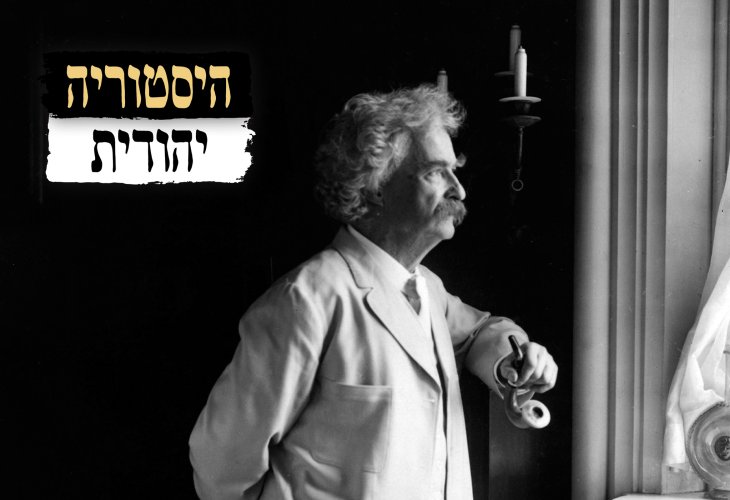Mark Twain's Eye-Opening Visit to the Land of Israel
In 1867, famed American author Mark Twain journeyed to the biblical land to witness the settings of great biblical events firsthand.
 Mark Twain (Photo: shutterstock)
Mark Twain (Photo: shutterstock)"Entering the village of Magdala was like walking into a ghost town. Not a soul in sight. But as our horses clattered down the path, dozens of heads popped up from behind huts. Suddenly, we were surrounded by a chaotic scene of shouting, crying, and clamor. What did they want? Baksheesh! Khawaja! Baksheesh! They cried out in unison, with children showing their wounds and adults their deformities and disabilities. Never have I been caught in such a tumult," Twain wrote.
This is how the renowned American author Mark Twain recounted a significant experience from his visit to the Holy Land. The writer, known globally for works like 'Tom Sawyer' and 'The Prince and the Pauper,' decided to journey to the biblical land in 1867 to see firsthand the locations of towering biblical events. He traveled aboard the steamship 'Quaker City' with a group of English pilgrims. The travels of these Western European gentlemen through a desolate land, inhabited by primitive Bedouins, led to many humorous incidents, which Twain described with his signature wit.
Yet, sometimes Twain would put his humor aside, marveling at the strength of biblical prophecy. Reflecting on his tour of the Jezreel Valley, he described: "Fifteen hundred years before the Common Era, our campsite at Merom hosted one of Joshua's great battles... He left no space for newspaper debates over who won, having wiped out the Canaanites entirely..."
"Such dramatic episodes no longer unfold in this valley. Not a single village can be found in its expanse for miles around, save for a couple of Bedouin tent clusters. You could travel ten miles and encounter fewer than ten people. This region was prophesied: 'And I will make it a wasteland, and your enemies who live there shall be appalled. And you, I will scatter among the nations, and unsheathe the sword after you. Your land shall be desolate and your cities a ruin.' Who could stand here at this barren spring and claim the prophecy unfulfilled?"
In summing up his book, he writes: "If the statistics are correct, the Jews constitute but one percent of the human race. A negligible shadow, a flicker of starlight. Nevertheless, they are heard of, widely observed. Always have been.
"The Egyptians, Babylonians, and Persians rose, filled the globe with sound and splendor, then faded to dream-stuff and passed away; Greeks and Romans followed, and made a vast noise, and they are gone; other peoples have sprung up, held the torch high for a time, but it burned out, and they sit in twilight now or have vanished.
"The Jew has seen them all, survived them all, and remains. No signs of decay, no aging cheek, no slowing slab-steps. His vigour is still fresh. All things are mortal but the Jew; all other forces pass, but he remains. What is the secret of his immortality?"
Would that every Jew in the world could feel what that gentile felt one hundred fifty years ago: how the land lay desolate under enemies, yet as the prophecies of destruction were fulfilled, Hashem magnified His grace upon us, showcasing to the world the secret of our endurance.

